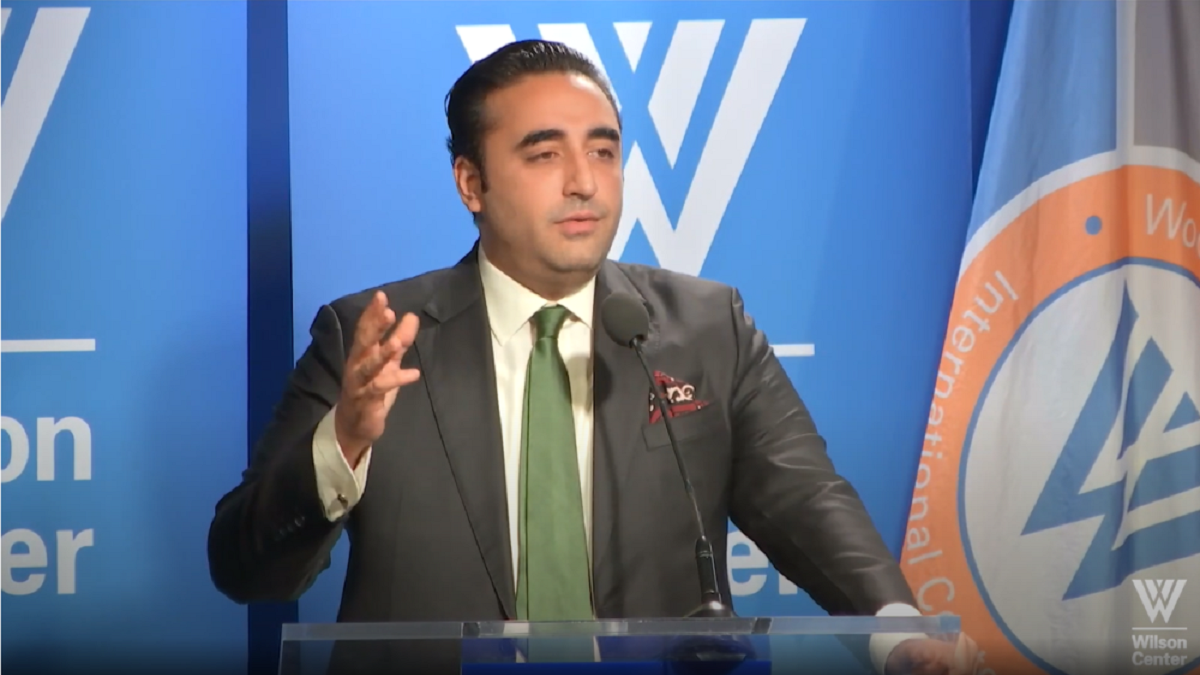Foreign Minister Bilawal Bhutto Zardari presented Pakistan’s foreign policy strategy on Friday, reiterating the nation’s stance against bloc politics or a resurgence of the Cold War era. Addressing the Institute of Strategic Studies Islamabad (ISSI), Bilawal expressed concerns about the potential dangers of forming military alliances at the cost of others. Although he did not explicitly mention any nations, the comment seemingly alluded to Western powers’ efforts to elevate India against China.
This statement is particularly significant considering the ongoing speculations about Pakistan’s increasing alignment with China due to its intensifying economic troubles. There are apprehensions that geopolitics might be causing the delay in the IMF bailout for Pakistan. Yet, Bilawal’s remarks indicate that Pakistan aims to avoid situations where it is forced to choose sides.
Bilawal Bhutto advocates for cooperation rather than confrontation as the driving force for international relations. He stressed the value of economic interdependence and peaceful coexistence while warning against potential conflicts and confrontations. Despite these statements, Bilawal did not downplay Pakistan’s strong ties with China, referring to the partnership as enduring, mutually beneficial, and continuously strengthening across various fields.
The Foreign Minister highlighted Pakistan’s commitment to the success of the China-Pakistan Economic Corridor (CPEC). In its tenth year, the project has brought transformative changes, and its expansion towards Afghanistan and the West would further promote connectivity and economic integration.
While maintaining robust ties with China, Bilawal also acknowledged the positive momentum in Pakistan’s relationship with the United States, attributing it to proactive outreach that led to high-level visits from both sides. He expressed confidence that decoupling the two countries’ relations would enhance their bilateral ties.
Commenting on Pakistan’s relationship with Russia, he described it as being founded on trust, understanding, and collaboration on issues of common concern. He expressed hope for peaceful resolutions to the Russia-Ukraine conflict through dialogue and diplomacy.
With respect to India, Bilawal noted that current relations are tainted by mistrust, primarily due to India’s unilateral actions on August 5, 2019. However, he confirmed Pakistan’s dedication to establishing respectful and cooperative relations with India based on mutual respect and sovereign equality.
To facilitate progress, Bilawal Bhutto asserted that India must address the barriers preventing peaceful coexistence, reverse its unlawful actions in IIOJK, and create a conducive environment for fruitful engagement and result-oriented dialogue.
Bilawal Bhutto reiterated Pakistan’s commitment to peacefully resolving the Jammu and Kashmir dispute in accordance with the UN Security Council resolution and the wishes of the Kashmiri people. He noted that a just and fair resolution would not only ensure durable peace in South Asia, but also contribute to the prosperity of a significant portion of humanity residing in the region.
Discussing the situation in Afghanistan, he urged the international community to adopt a pragmatic approach and maintain constructive engagement. He warned that neglecting Afghanistan at this crucial juncture could have catastrophic consequences. He encouraged the international community to support Afghanistan in averting any potential humanitarian crisis and promote its long-term development.
Finally, Bilawal expressed hope that the Taliban authorities would meet the international community’s expectations, emphasizing the need for inclusivity, respect for all Afghans’ human rights, and effective counter-terrorism action by the Afghan Interim Government.



























